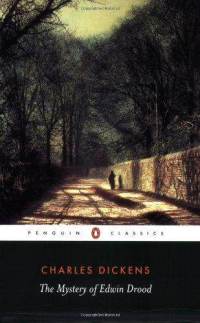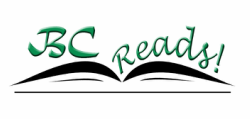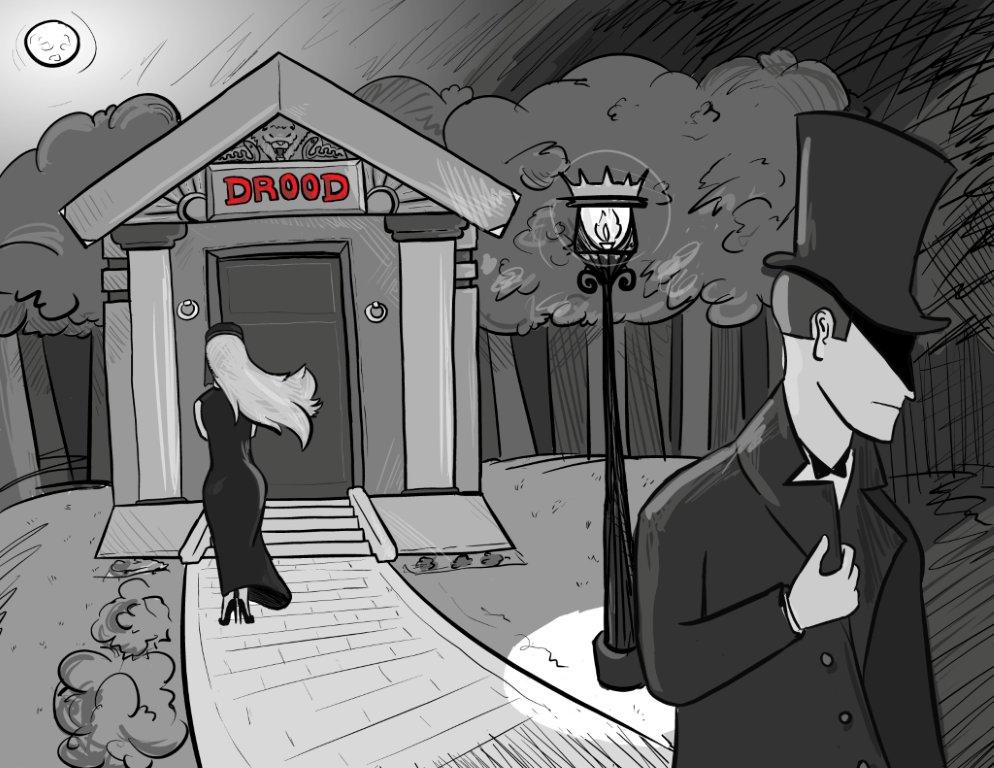
Author: Charles Dickens
Genre: Mystery
Date Published: 1870
Pages: 432 (with notes)
Rating: 5 out of 5 stars
One of the most beloved of Dickensian tropes, and perhaps also one of the most ridiculed, the ending, in pulling together and even justifying the rest of the story, has been called the signature of all Dickens and even Victorian novels. In this sense, The Mystery of Edwin Drood, his last and unfinished novel, seems to violate every motivation that one would have in reading such a book. In breaking off a mere six installments into the planned twelve after its author’s untimely death, it lacks what most readers would consider the most satisfying portion, where Dickens tends to tie up loose ends into ingenious, if always perfectly fitting, conclusions. Furthermore, the title refers to a mystery, and indeed, by the end of the existing installments, Edwin Drood has vanished, apparently dead, without the ending Dickens almost certainly envisioned to explain the circumstances of his disappearance.
What has continued to draw readers to the story is this unknowable nature; the story has no ending, yes, but that only increases the appeal. After all, isn’t the perfect mystery the one that can never be solved? As a result, one can attach significance to any small detail and conjecture the vital purpose it might have served in the final chapters. Scholars and laymen alike have pored over the details Dickens provides, but even with the help of the notes recovered after his death and the famed “Sapsea fragment,” a piece of a later chapter introducing new characters, the question of what happened to Edwin Drood cannot definitively be answered.
The clues are all there, of course. Most pin the deed on John Jasper, Drood’s crafty uncle and the choirmaster, whose supposed piety masks an opium addiction and an obsessive love for Drood’s fiancé. Yet other questions abound; who, for instance, is the mysterious stranger and detective, Dick Datchery, whose inscrutable features many scholars believe hide the identity of a previously known character, disguising him or herself to uncover the truth? What stake does Princess Puffer, Jasper’s opium supplier, have in the case, and why does she venture to Cloisteram in the final chapters?
Readers must accept that these questions can never be answered. Those who hope to find the answers to the questions The Mystery of Edwin Drood poses will inevitably be disappointed. But those perhaps accustomed to Dickens through his other works, who can wonder his motives and plans without ever realizing them, who can relish in the utter impenetrability of the mystery that Dickens has set before us, those are the readers who will enjoy this novel. The Mystery of Edwin Drood has been called the perfect mystery novel, not by virtue of its technique or even the author’s intention to deceive, but because it is the only one whose mystery can, quite literally, never be solved. Who killed Edwin Drood? Only his creator can fathom.
Review by Jennifer Heine, A&S '16
Illustration below by Patrick Hughes, A&S '14


 RSS Feed
RSS Feed
